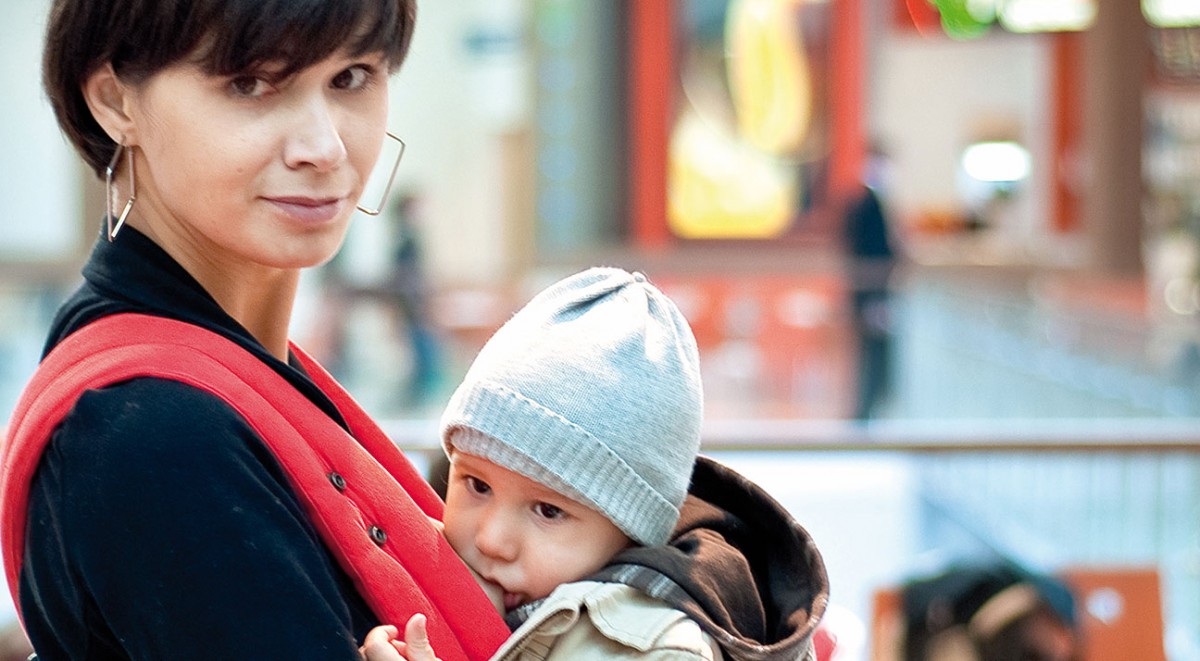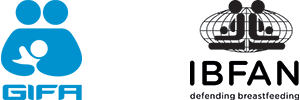
2024/03/31
Despite looks, Switzerland does not provide a very suitable environment for breastfeeding, with very limited implementation of the International Code and societal support that needs to be improved for breastfeeding mothers.
- Breastfeeding policy in Switzerland
- COFF : « Breastfeeding concerns the whole society » – 2024
- The WBTi Swiss Report – 2020
- MOSEB – 2017
- The Swiss Infant Feeding Study SWIFS – 2014
- The Swiss Health Survey – 2012
- Baby-Friendly Hospital Initiative (BFHI) in Switzerland
- No precise data available on breastfeeding
- Breastfeeding beyond 2 years
- Very scarce public messages in favor of breastfeeding
- Protection of non-breastfed children
- More Information
Breastfeeding policy in Switzerland
Switzerland offers a low level of protection for younger consumers and their parents against the strong promotion of breastmilk substitutes, bottles and teats. It guarantees maternity protectionFrench), which is certainly available but low compared to northern European countries showing higher breastfeeding rates. There are considerable conflicts of interest and the training of health professionals remains inadequate.
Switzerland, contrarily to other European countries, and to the recommendations of the Global Strategy for Infant and Young Child Feeding adopted (IYCF) by the World Health Assembly in 2002 and published in 2003, has not developed a coherent strategy for the protection, promotion, and support of breastfeeding. Few financial resources (Fr.) are available to finance projects for the protection, promotion and support of breastfeeding at the national and cantonal levels.t.
Switzerland could do better to protect its youngest consumers and enabling them, according to Article 24 of the Convention on the Rights of the Child, General Comment 15 on the right of the child to the enjoyment of the highest attainable standard of health.
COFF : « Breastfeeding concerns the whole society » – 2024
See our Newspost on this subject. The Committee on Family Affairs published this document in February 2024. https://ekff.admin.ch/fr/medias/communiques-de-presse/detail/lallaitement-concerne-toute-la-societe-policy-brief-n-7 which stresses the importance of substantial maternity leave to support breastfeeding.
EKFF_Policy_Brief_Nr_7_FRDownload
The WBTi Swiss Report – 2020
The WBTi (World Breastfeeding Trends Initiative) approach, which audits breastfeeding programmes and policies in each country, was launched in September 2018 in Switzerland. Since 2005, more than 100 countries are in the WBTi process, European countries started in 2015. The WBTi Reports have been published for Germany, Belgium, France, the United Kingdom, Switzerland and many more. The Swiss WBTi 2020 Report provides an overview of the situation and offers food for thought.
MOSEB – 2017
The food and physical activity monitoring system (MOSEB) contains indicators on breastfeeding. Here are the figures for 2017 (3 pages).
MOSEB-indicateur-2-7-frDownload
The Swiss Infant Feeding Study SWIFS – 2014
World Health Organization (WHO) guidelines are far from being satisfactorily applied since only 14% of infants are exclusively breastfed until the end of the 6th month and the average duration of breastfeeding is only 31 weeks according to the SWIFS Swiss Infant Feeding Study of 2003. The SWIFS of 2014 is similar.
The Swiss Infant Feeding Study (SWIFS) is the third study on breastfeeding and infant nutrition in Switzerland. Same as the studies in 1994 [7] and 2003 [8], its essential aim is to monitor the prevalence and duration of breastfeeding and infant nutrition in Switzerland. The use of identical survey instruments to collect breastfeeding and infant feeding data allows a comparison of the present results with those from 2003 and, in part, from 1994. The data are provided by a cross sectional study based on randomised samples (n=1650)
Breastfeeding is initiated by 95 % of mothers. Over 50 % of the children had been breastfed exclusively for at l east12 weeks, and the median total duration of breastfeeding was 31 weeks.
The Swiss Health Survey – 2012
The Swiss Health Survey 2012 (https://www.bfs.admin.ch/asset/en/349060) showed that about 88% of women breastfed their latest child, and 25 % of mothers breastfed for more than 4 months. However, between 2002 and 2007, the proportion of mothers who did not breastfeed hardly changed. In contrast, the number of mothers who breastfed for more than three months was higher in 2007.
Baby-Friendly Hospital Initiative (BFHI) in Switzerland
According to UNICEF Switzerland (in German), responsible for the Baby-Friendly Hospital Initiative (BFHI), Switzerland was up to 2012 a leader in Europe for the promotion of breastfeeding, since nearly half of all babies born in Switzerland were born in BFH certified facilities. In 2024, less then 20 facilities are certified.
No precise data available on breastfeeding
More recent data on the implementation of WHO recommendations (starting breastfeeding within one hour of birth, exclusive breastfeeding for 6 months, and continued breastfeeding for 2 years or more) are unfortunately not available for Switzerland (link unavailable today) (UNICEF State of the World’s Children Report). Moreover, national breastfeeding recommendations are not always aligned with WHO recommendations.
While the Swiss Foundation for the Promotion of Breastfeeding and the Federal Office of Public Health (in French) clearly refer to the WHO recommendations, the position of the Swiss Paediatric Society (Fr.) is confusing, since it recommends to start breastfeeding within 2 or 3 hours after birth, which contradicts the WHO standards. The Nutrition Commission of the same Swiss Paediatrics Society, however, stipulates that « the WHO recommendations may also apply in Switzerland (Fr.), but with the restriction that the introduction of complementary foods is possible at the individual level and, in certain situations, reasonable from the fifth month of life at the earliest ». The introduction of solids at 4 months (or from the 5th month), also recommended by the Swiss Society of Nutrition, is however also contrary to WHO public health recommendations (at 6 months, or from the 7th month).
Breastfeeding beyond 2 years
Finally, in Switzerland, it is rarely mentioned that breastfeeding should be supported beyond the age of 2 years (a WHO recommendation). The recommendation to continue breastfeeding after introduction of complementary foods and until and beyond the child is 2 years old, is still controversial.
Very scarce public messages in favor of breastfeeding
It must be noted that the protection, promotion and support of optimal breastfeeding practices is not yet a reality in Switzerland today. For mothers and the general public, messages remain contradictory, and Switzerland is not among the countries offering a supportive environment for optimal breastfeeding practices. For mothers, and parents, who always do their best for their children, the feeling of guilt often prevails, and yet, who is responsible?
Protection of non-breastfed children
With regard to the protection of non-breastfed children, Switzerland has not adopted the 2007 WHO and FAO Guidelines on the safe preparation, storage and handling of powdered infant formula. On the contrary, the Swiss Paediatric Society, while referring to the WHO, advises to « heat the water to >70 degrees C, let it cool down before preparing the artificial milk bottle, and give it to the baby at body temperature (Paediatrica 2013) ». This differs completely from the actual WHO recommendations, which instead require that the preparation (mixing powder – water) be carried out at a temperature above 70 degrees C, then allowed to cool before consumption – this to protect against infections due to the presence of bacteria in the milk powder, which is not sterile (Fr.).
More Information
- List of publications related to Switzerland (Fr.)
- Recommendations on nutrition during pregnancy and breastfeeding: good foundations for the lives of the very young ones (link unavailable), FOPH 2008
- Nutrition during pregnancy and breastfeeding, (Fr.) FOPH 2008
- Recommendations for infant feeding 2017, (Fr.) Swiss Paediatric Society SSP 2017
- IBFAN-GIFA Analysis of SSP 2017 Paediatric Recommendations (GIFA Document on request)
- Why is it important to breastfeed, even in Europe and even nowadays? Lancet Breastfeeding Series 2016

